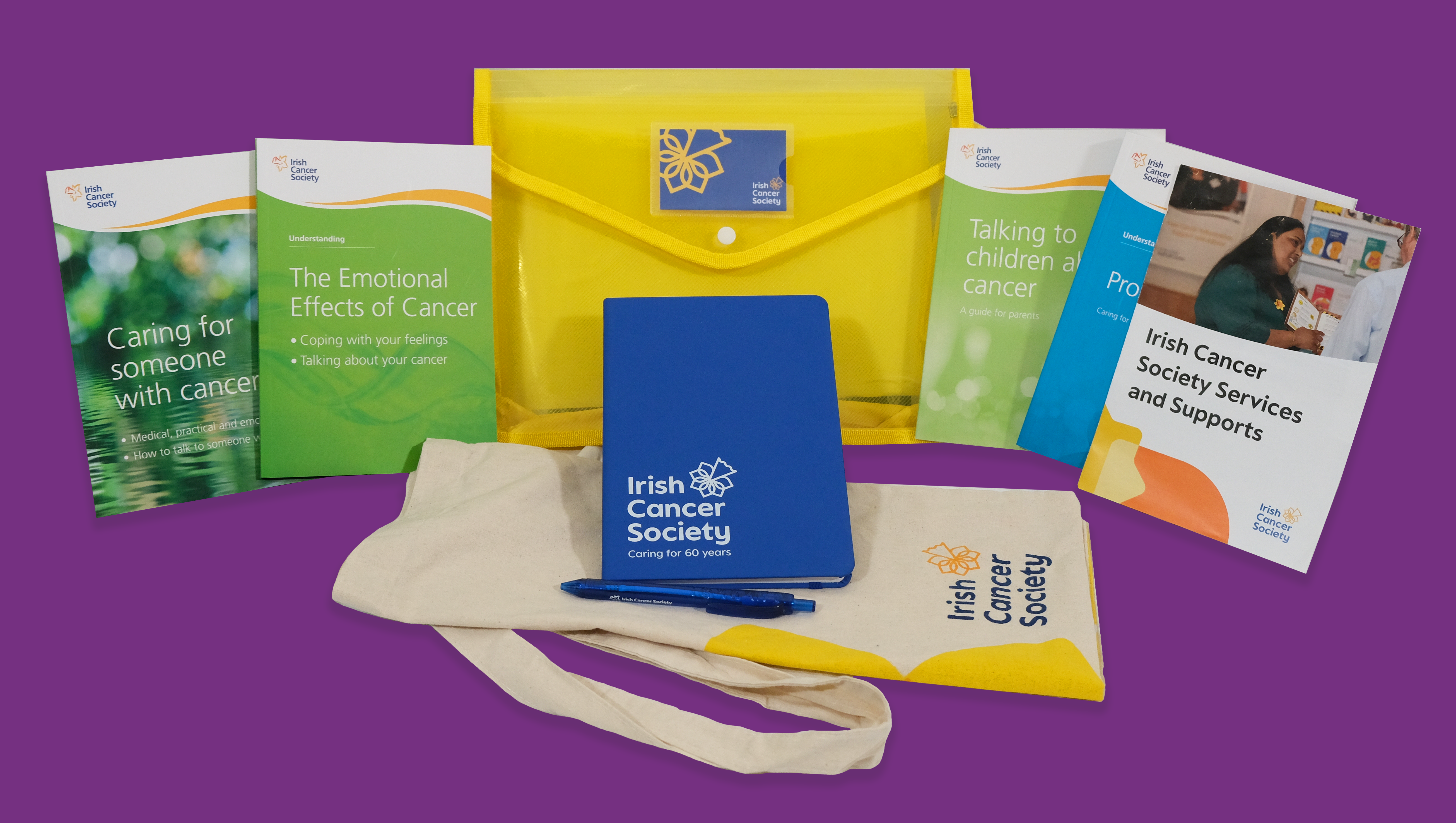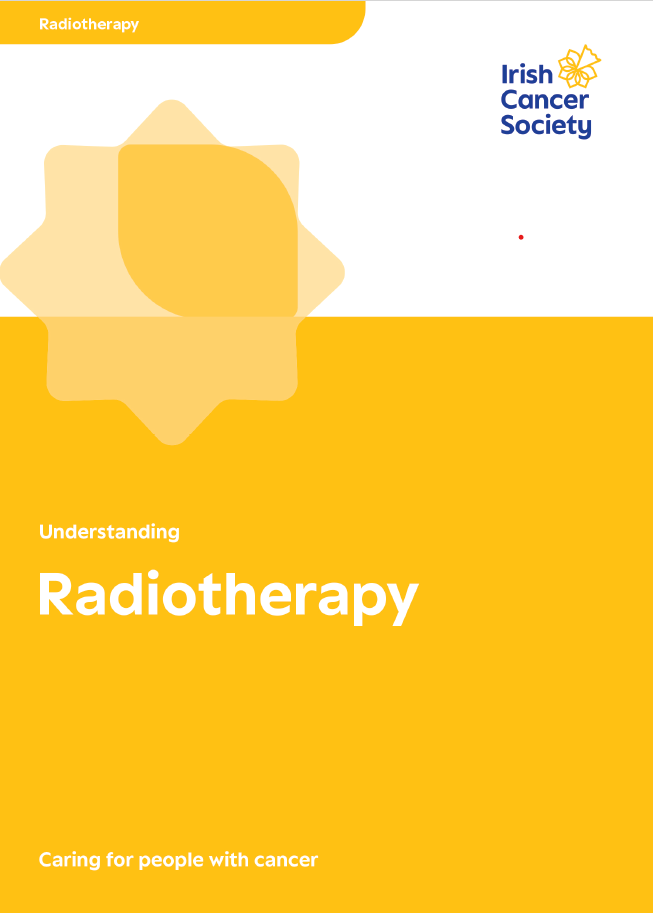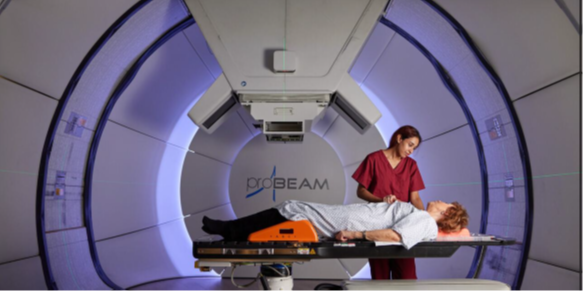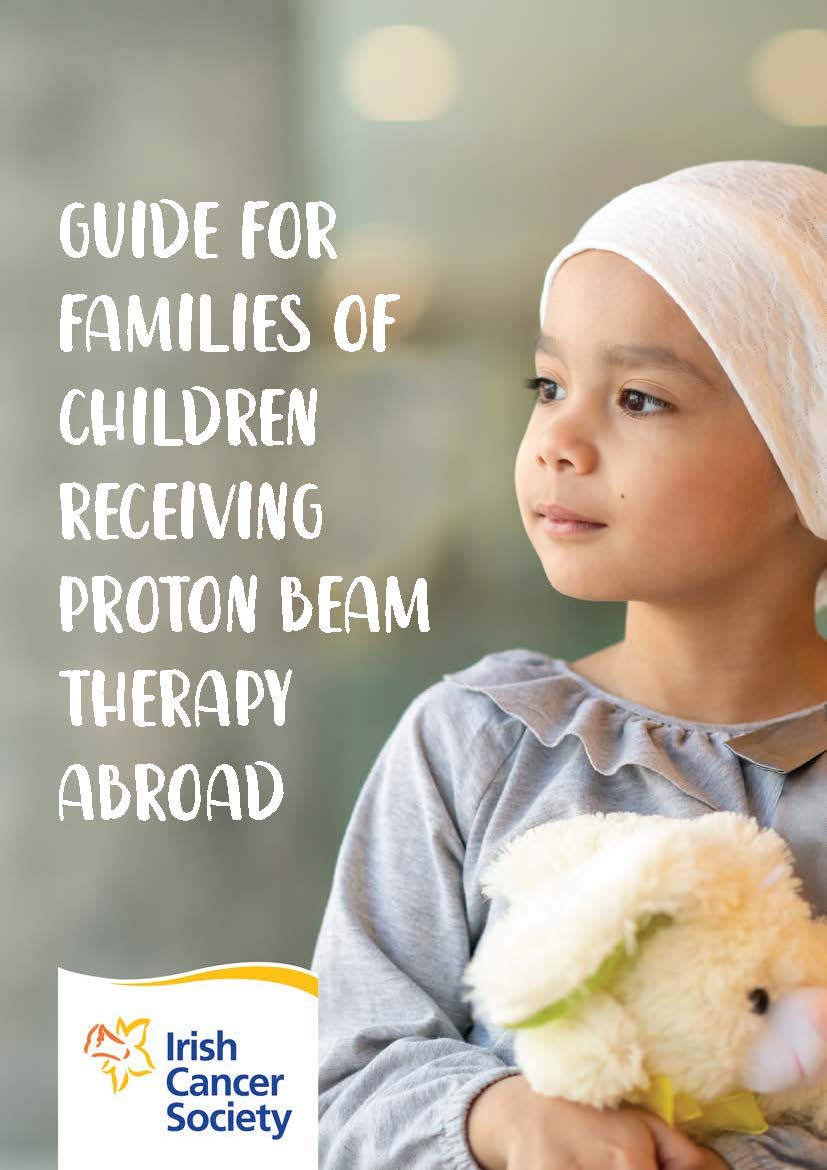If you have any questions about what you’ve seen, our Support Line cancer nurses can help on 1800 200 700.
Radiotherapy
Radiotherapy uses high-energy radiation to kill cancer cells.
What is radiotherapy?
Radiotherapy uses high-energy radiation to kill cancer cells. Radiotherapy damages the cancer cells’ DNA. This stops the cancer cells from growing or spreading.
Why might I have radiotherapy?
- To cure your cancer
- To shrink a tumour before surgery, to make it easier to remove
- To kill any cancer cells that remain after surgery
- To stop cancer spreading
- To treat cancer that has come back after treatment
Palliative radiotherapy
You might have radiotherapy to help with symptoms like pressure, pain or bleeding or to slow down the cancer’s growth. This is called palliative radiotherapy. Often a short course, sometimes only a single treatment, is needed.
Radiotherapy and other cancer treatments
Radiotherapy can be given in combination with other treatments, such as surgery, chemotherapy, hormone therapy and targeted therapies. For some cancer patients, radiotherapy is the only treatment needed.
Chemoradiation
Taking certain chemotherapy drugs can make the cancer cells more sensitive to radiation (radiosensitisers). This helps the radiotherapy to work better. Having chemotherapy and radiotherapy together is called chemoradiation.
Types of radiotherapy
External beam radiotherapy
This is the most common type.
A machine called a linear accelerator (LINAC) aims high-energy beams at the cancer from outside the body. The beams are carefully targeted at the tumour, or the area where the tumour was removed, as well as a small amount of surrounding tissue—just in case any cancer cells have spread nearby.
You will have to go for planning sessions beforehand if you’re having external radiotherapy. This is to plan the dose of radiotherapy you will need and mark out the exact area that needs to be treated.
External beam radiotherapy is painless and each session usually lasts just a few minutes.
Find out more about EBT, including planning EBT and the different types of EBT, including stereotactic radiotherapy.
Internal radiotherapy (brachytherapy)
Radiation sources (implants) are put inside your body, on or near the tumour. The implants may be removed after a short time – maybe only 20 or 30 minutes – or they may be left in
place to give the radiation over a long period of time. Brachytherapy can be used for treating cancers such as prostate, breast and head and neck cancers.
Find out more about internal radiotherapy, including the types of implant and how treatment is given.
You may have both internal and external radiotherapy.
Radiotherapy using radioactive drugs (radionuclide therapy)
Radioactive drugs called radionuclides or radioisotopes are given by mouth or put into a vein (intravenously) to treat certain types of cancer, such as thyroid and advanced (metastatic) prostate cancer. These drugs travel throughout the body.
Proton beam therapy (PBT)
PBT is a type of radiation treatment that uses protons rather than X-rays (photons) to treat tumours. PBT is only suitable for a small number of people with specific types of tumours.
PBT is not currently available in Ireland. If your doctor recommends PBT, you will need to travel abroad to receive it.
Where will I have radiotherapy?
You can get radiotherapy in special cancer treatment centres. The radiotherapy unit may be in a different department or a different hospital from where you have been before.
Coping with radiotherapy
Radiotherapy treatment can be tiring, as you usually have to go to hospital 5 days a week for a number of weeks. This can be even harder if you have to travel some distance to get treatment. Sometimes it may affect your ability to work or look after your family.
- Ask friends and family to help with travel, if you find it tiring
- Ask your radiation therapist or medical social worker at the hospital for advice if you need help with travel
- Our Travel2Care scheme may be able to help with travel expenses
- It may be possible to stay at the hospital in guest accommodation. Your cancer specialist may have to write a letter requesting this service for you.
- If you need advice about nearby B&Bs or hotels, the radiotherapy staff may be able to give you some advice.
- Some people find that they can carry on as normal during treatment and continue working. Others might find it very tiring and prefer to stay at home and take sick leave from work or school or college. Read more about work and cancer.
- Don’t be afraid to ask for help if you feel overwhelmed, especially if you have young children or older parents to care for.
Try to remain active and ideally take some exercise both during and after radiotherapy treatment. Research shows that there are many benefits to exercise:
- It helps to reduce the symptoms of fatigue and the side-effects of cancer treatments and it improves your overall quality of life.
- Regular exercise (ideally 30 minutes of moderate activity 3-5 times a week) builds up your physical fitness level, improves your energy, strength, balance, stamina and co-ordination.
- Regular exercise along with a healthy diet can help reduce the risk of breast cancer and bowel cancer coming back.
- Exercise encourages your body to release endorphins. These are often called ‘feel-good hormones’. When released, they can lift your mood and sense of wellbeing, and lower stress levels.
Start gradually if you have not been taking regular exercise before your cancer diagnosis. Remember a little exercise is better than none. Even a short walk is a good place to start.
Will I get side-effects?
If you get any side-effects they mostly affect the area being treated. For example, diarrhoea or constipation after stomach / pelvis radiotherapy, a cough after chest radiotherapy. Most side-effects ease in the weeks and months after treatment.
Usually you don’t get side-effects with palliative radiotherapy.
Patient Education videos
Our radiotherapy videos are for patients who are due to begin radiotherapy treatment shortly.
You can watch our radiotherapy videos online in your own time
Watch the full series of 7 videos covering what to expect in your treatment plan, side-effects and supports available to you.
Medical content updated from our 'Understanding radiotherapy' booklet (2025), reviewed by Dr Guhan Rangaswamy, National Radiation Oncology Training Coordinator & Radiation Oncology Education Lead, Dr Aisling Glynn, Senior Locum Consultant Radiation Oncologist & Local Training Coordinator, Caitriona Kelly, Clinical Specialist Radiation Therapist, Linda Wilson, Daffodil Centre Nurse.
Radiotherapy booklets and leaflets



Talk to a Cancer Nurse

Support Line
Our Daffodil Centres




